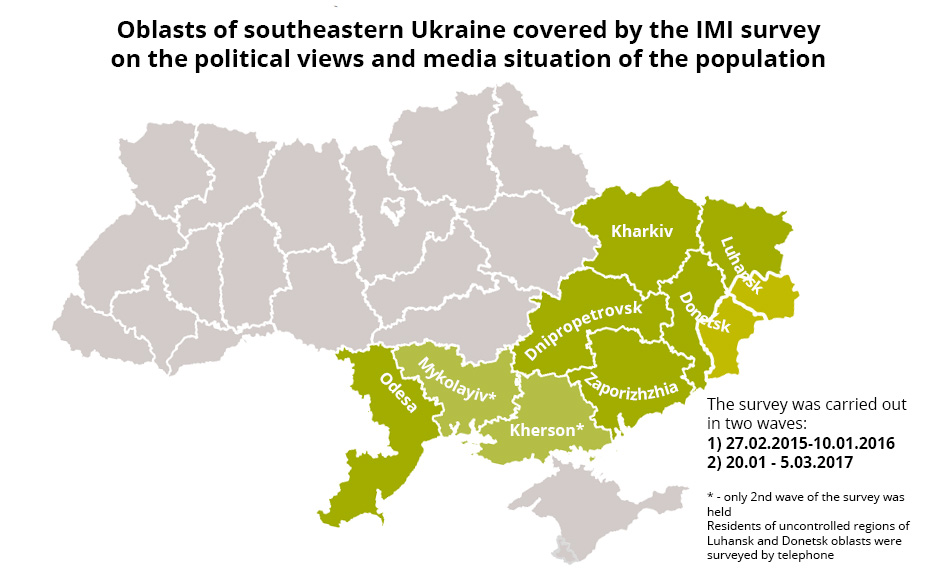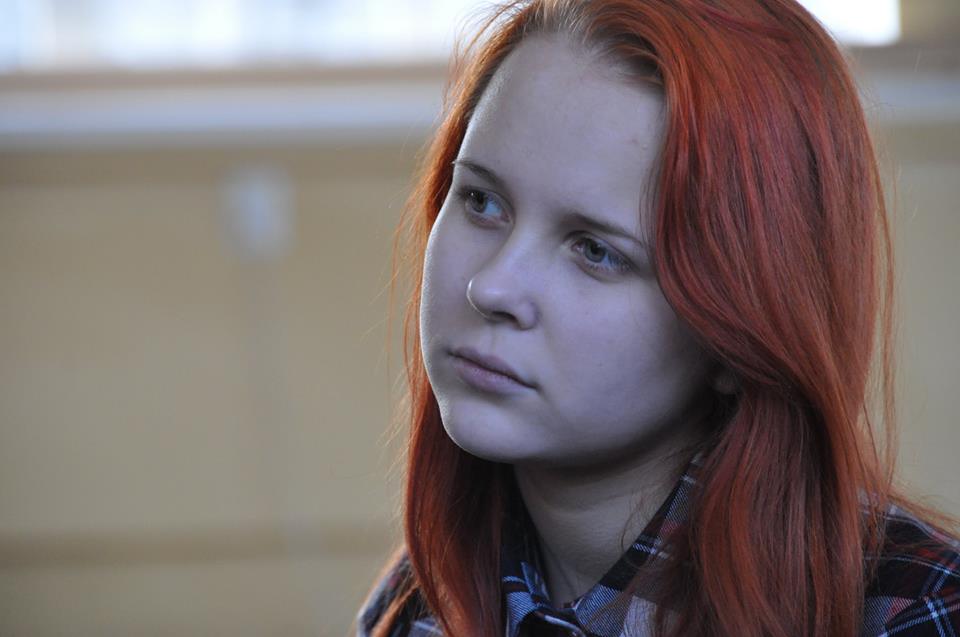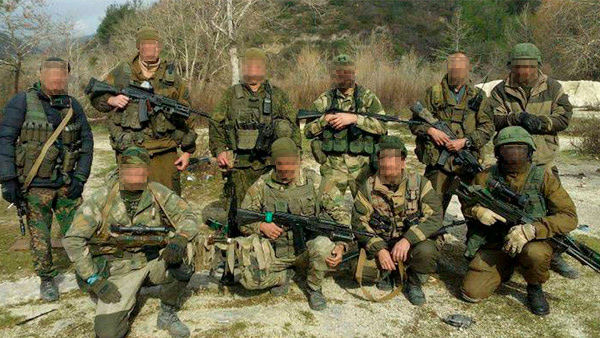Russian politicians and pro-Russian politicians in Ukraine love the myth that the Ukrainian language is a big problem for people living in southeastern Ukraine. After the country turned westward following the Euromaidan revolution, Russian President Vladimir Putin considered the protection of Russian speakers an adequate reason for invading Ukraine, leading some Ukrainians to urge to switch to Ukrainian as protection for Russian aggression. Even now, pro-Russian forces continue to exploit this myth, which sometimes spills out to western media. A new report by the Institute of Mass Information suggests that the language question is not as important to the population of southeastern Ukraine as politicians would like their electorate to believe.

The question of what status the Ukrainian and Russian languages should have in Ukraine was (and still is) a traditional topic for political manipulations. The idea that there is a real problem in this regard was imposed upon the population.
For example in 2012, the legislation which allowed regions with over 10% of national minorities to have a second official language was introduced. This policy endangered the Ukrainian language, which underwent something called a “linguicide” over the 200+ years Ukraine was governed by empires as a result of which its role in southeast Ukraine is marginalized, having been replaced by Russian, and provoked protests, including the so-called Language Maidan.
Read also: A short guide to the linguicide of the Ukrainian language | Infographics
After the Revolution of Dignity in 2014, a bill was passed to abolish this scandalous language legislation. However, it was not signed and is still in place. According to the data of activists, in the 5 years since the law was adopted, the number of citizens speaking Ukrainian decreased by 1 million.
The culmination of this situation took place in 2014 when the Kremlin used this imposed problem as an argument for justifying its crimes – the creation of fake republics and initiation of the war in Donbas in territories that are predominantly Russian-speaking.
Recent research of the Center for Eastern European and International Studies, ZOiS, reveals that roughly one-half the populiving living in the government-controlled territories of Donbas consider Russian as their native language, and almost 60% of respondents on the territories of the self-proclaimed republics of “DNR” and “LNR” consider Russian as native. Interestingly, there are more people who consider both Ukrainian and Russian as their native languages in the Donbas “republics,” more than in the government-controlled territories.
But do people in southeastern Ukraine have problems with Ukrainian? Do they understand it?
Over 80% feel no discomfort regarding the Ukrainian language

Research by the Institute of Mass Information reveals that over 80% of residents of these parts of Ukraine feel absolutely or rather comfortable when they speak (81%), hear (89%), or read the Ukrainian language (85%). Moreover, about one-fifth of them support taking measures to counter the dominant position of the Russian language in Ukraine.
Overall, for six of the oblasts where two waves of surveys were held, consumption of purely Russian-language media went down by 6% over the last year. In 2016, 61% of the surveyed Internet users most often used the purely Russian-language websites, and now their share constitutes 55%.
Most often, consumers of mass media in the eight surveyed oblasts consume both Russian-language and Ukrainian-language radio stations (64%) and TV channels (74%), and among online media outlets and press, the Russian-language ones are used by the majority of the surveyed (53 and 42% respectively).
As to the regional peculiarities, the largest share of consumers of purely Ukrainian-language TV programs was found in Kherson (16%) and Dnipropetrovsk (15%) oblasts. The lowest share was observed in Donetsk (1%) and Odesa oblasts (4%).

This information is important because since last year Ukraine started to work more actively on its language policy. In Autumn 2016, legislation was adopted which foresaw that the share of Ukrainian songs on the radio will gradually grow to 35% in 3 years, and the amount of programs in Ukrainian – to 60%.
Also in May 2017, Ukrainian Parliament introduced legislation for TV according to which 75% of programs and films in national and regional channels should be in Ukrainian, for local channels the share is 60%, for the newscasts the share is also 75%.
The fact that there are more people who feel comfortable with Ukrainian than those who consider it their native language in these regions suggests that the problem of the Ukrainian language in Donbas has been imposed. This issue was exploited by politicians for so long that now it’s hard to separate the core of the problem from its political innuendo. And as long as certain political forces will use it as a political argument, it will remain a problem.
Read also:
- Russia concerned about rights of Russian speakers in the Baltics
- The “Russian World” and the Kivalov-Kolesnichenko language law in Ukraine
- Deception, Disinformation, and Doubt: Hybrid Warfare in Eastern Ukraine
- Kivalov-Kolesnichenko Language Law: Kremlin’s Trojan horse in Ukraine
- The day when Lviv spoke Russian and Donetsk – Ukrainian








